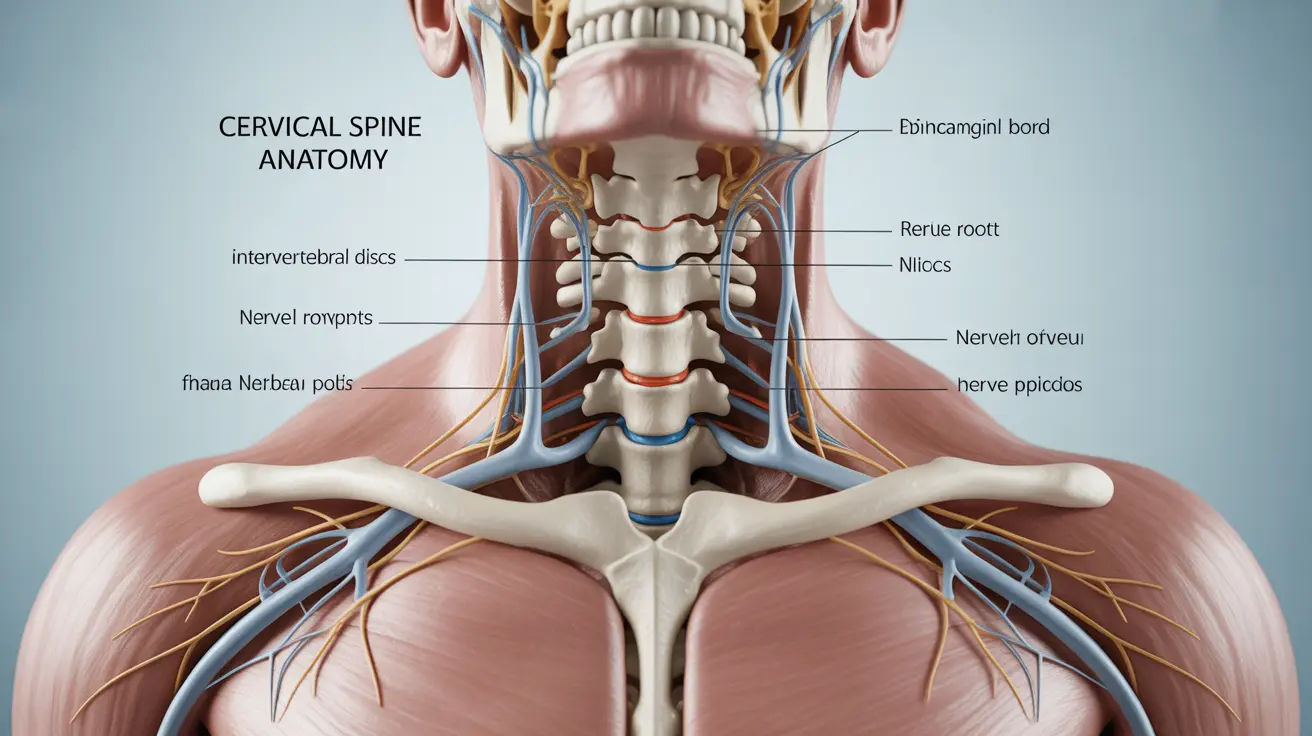Living with a pinched nerve in the neck and shoulder area can significantly impact your daily life, causing discomfort and limiting your normal activities. This condition, medically known as cervical radiculopathy, occurs when nerve roots in the cervical spine become compressed or irritated. Understanding the symptoms, causes, and treatment options is crucial for managing this condition effectively.
Whether caused by injury, aging, or other underlying conditions, a pinched nerve requires proper attention and care. This comprehensive guide will help you identify symptoms, understand treatment options, and learn about effective management strategies.
Common Symptoms and Their Impact
When experiencing a pinched nerve in the neck and shoulder region, you may notice various symptoms that can affect different areas of your upper body:
- Sharp, burning pain radiating from the neck into the shoulder
- Numbness or tingling sensation extending down the arm
- Muscle weakness in the affected area
- Decreased range of motion in the neck
- Heightened pain when turning the head or looking down
These symptoms can significantly impact daily activities, making simple tasks like driving, working at a computer, or even sleeping challenging. The intensity of symptoms often varies throughout the day and may worsen with certain movements or positions.
Causes and Risk Factors
Several factors can contribute to developing a pinched nerve in the neck and shoulder:
Structural Causes
- Herniated or bulging discs
- Bone spurs from cervical spine arthritis
- Cervical spine stenosis
- Degenerative disc disease
Lifestyle and Environmental Factors
- Poor posture, especially during computer work
- Repetitive movements or activities
- Carrying heavy bags on one shoulder
- Sleeping in awkward positions
Treatment Approaches
Treatment for a pinched nerve typically begins with conservative methods before considering more invasive options:
Non-Surgical Options
- Rest and activity modification
- Physical therapy exercises
- Over-the-counter pain medications
- Ice and heat therapy
- Gentle stretching routines
Medical Interventions
When conservative treatments don't provide adequate relief, medical professionals may recommend:
- Prescription medications
- Corticosteroid injections
- Manual therapy or chiropractic care
- Targeted physical therapy programs
Prevention and Self-Care
Preventing future episodes of pinched nerves involves maintaining good habits and proper body mechanics:
- Maintaining good posture throughout the day
- Taking regular breaks from prolonged sitting
- Performing neck-strengthening exercises
- Using ergonomic furniture and equipment
- Staying physically active with low-impact exercises
Frequently Asked Questions
What are the typical symptoms of a pinched nerve in the neck and shoulder, and how do they affect daily activities?
Typical symptoms include radiating pain, numbness, tingling, and muscle weakness in the neck, shoulder, and arm areas. These symptoms can affect daily activities like driving, working at a computer, sleeping, and even basic movements of the head and neck.
How is a pinched nerve in the neck and shoulder usually treated, and what are the most effective non-surgical options?
Common non-surgical treatments include physical therapy, pain medication, rest, ice/heat therapy, and gentle stretching exercises. The most effective approach often combines multiple treatment methods and is tailored to individual needs.
Can a herniated disc or age-related spine changes cause a pinched nerve in the neck, and what are the signs to look out for?
Yes, both herniated discs and age-related spine changes can cause pinched nerves. Key signs include radiating pain, numbness, tingling sensations, and muscle weakness in specific nerve distribution patterns.
What exercises or stretches can help relieve pain from a pinched nerve in the neck and shoulder, and how often should they be done?
Gentle neck stretches, shoulder rolls, and chin tucks can help relieve pain. These exercises should be performed 2-3 times daily, but only after consulting with a healthcare provider to ensure they're appropriate for your condition.
How long does it typically take for symptoms of a pinched nerve in the neck and shoulder to resolve with conservative treatments, and when might surgery be considered?
Most cases improve within 4-6 weeks with conservative treatment. Surgery might be considered if symptoms persist beyond 3 months, cause significant weakness, or if conservative treatments fail to provide relief.




